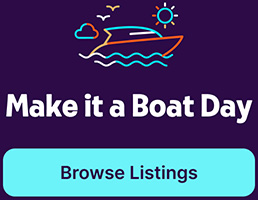Choosing the right engine for your small boat can be a daunting task, especially with the wide range of options available in the market. The engine is the heart of your boat and it's crucial to make the right choice to ensure optimal performance and longevity. This guide will help you navigate through the process of choosing the best small boat engine.
Understanding Your Boat’s Needs
Before you start looking at engines, it's important to first understand your boat's needs. The type of engine you choose will largely depend on the size of your boat, its hull design, and how you plan to use it.
For example, if you have a lightweight, flat-bottomed boat and you only plan to use it for leisurely fishing trips on calm waters, a small outboard motor might be all you need. On the other hand, if you have a heavier, deep-V hull boat and you plan to use it for offshore fishing or watersports, you might need a more powerful inboard engine.
Size of Your Boat
The size of your boat is one of the most important factors to consider when choosing an engine. As a general rule, larger boats require more horsepower to move efficiently through the water. However, it's also important to remember that more power means more weight, so you need to find a balance that won't overload your boat.
Most boat manufacturers provide a recommended horsepower range for each boat model, which can be a good starting point. However, you should also consider your own needs and preferences. For example, if you value speed and performance, you might want to choose an engine at the higher end of the recommended range.
Hull Design
The design of your boat's hull also plays a big role in determining the type of engine you need. Flat-bottomed boats, for example, are more efficient with smaller, lighter engines, while deep-V hulls require more power to overcome the increased drag.
Additionally, the hull material can also affect the performance of the engine. Aluminum and fiberglass hulls are lighter and therefore require less power to move, while steel or wood hulls are heavier and require more power.
Choosing the Right Type of Engine
Once you have a good understanding of your boat's needs, the next step is to choose the right type of engine. There are three main types of boat engines: outboard, inboard, and sterndrive.
Each type of engine has its own advantages and disadvantages, and the best choice will depend on your specific needs and preferences.
Outboard Engines
Outboard engines are the most common type of boat engine, especially for small to medium-sized boats. They are mounted on the outside of the boat and are usually very easy to operate and maintain.
One of the main advantages of outboard engines is their versatility. They can be used on a wide range of boat types and sizes, and they are available in a wide range of power options. They are also very efficient and have a good power-to-weight ratio.
Inboard Engines
Inboard engines are mounted inside the boat, usually in the center. They are typically more powerful than outboard engines and are commonly used on larger boats.
One of the main advantages of inboard engines is their durability. They are built to handle heavy loads and rough conditions, making them a good choice for offshore fishing or watersports. However, they are also more complex and require more maintenance than outboard engines.
Sterndrive Engines
Sterndrive engines, also known as inboard/outboard engines, are a hybrid between outboard and inboard engines. They are mounted inside the boat like an inboard engine, but they drive a propeller at the stern of the boat like an outboard engine.
Sterndrive engines offer a good balance between power and maneuverability, making them a popular choice for many boat owners. However, they are also more expensive and require more maintenance than outboard engines.
Considering Fuel Efficiency and Environmental Impact
Another important factor to consider when choosing a boat engine is fuel efficiency. Not only can a fuel-efficient engine save you money on fuel costs, but it can also have a lower environmental impact.
Most modern boat engines are designed to be fuel-efficient, but there can still be significant differences between different models and brands. When comparing engines, look for ones that have a good power-to-weight ratio and a low fuel consumption rate.
Additionally, consider the environmental impact of the engine. Look for engines that are certified by the Environmental Protection Agency (EPA) or other environmental organizations. These engines are designed to produce fewer emissions and have a lower impact on the environment.
Conclusion
Choosing the right engine for your small boat is a big decision that can significantly affect your boating experience. By understanding your boat's needs, considering the different types of engines, and taking into account fuel efficiency and environmental impact, you can make an informed decision that will serve you well for many years to come.
Remember, the best engine for your boat is not necessarily the most powerful or the most expensive one. It's the one that fits your needs and preferences the best. So take your time, do your research, and choose wisely.
Ready to Power Up Your Boating Business?
Now that you've got the insights on selecting the best engine for your small boat, it's time to turn your passion into profit with Getmyboat. List your boat for free and tap into a world of opportunity with our global audience eager to rent. Our comprehensive suite of boat management tools is designed to streamline your operations, from attracting new customers to processing payments with ease. Embrace the full potential of your boating business, manage your fleet effortlessly, and become a Superowner to maximize exposure. Don't miss the boat—list your boat today and watch your business set sail towards success.






